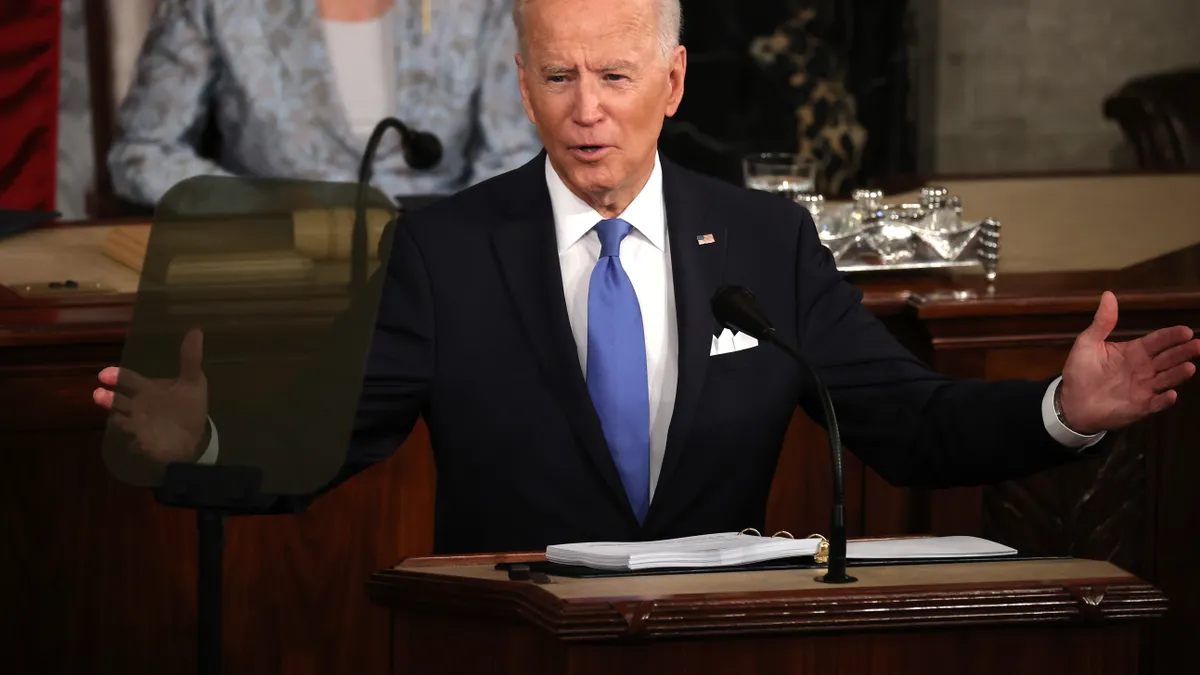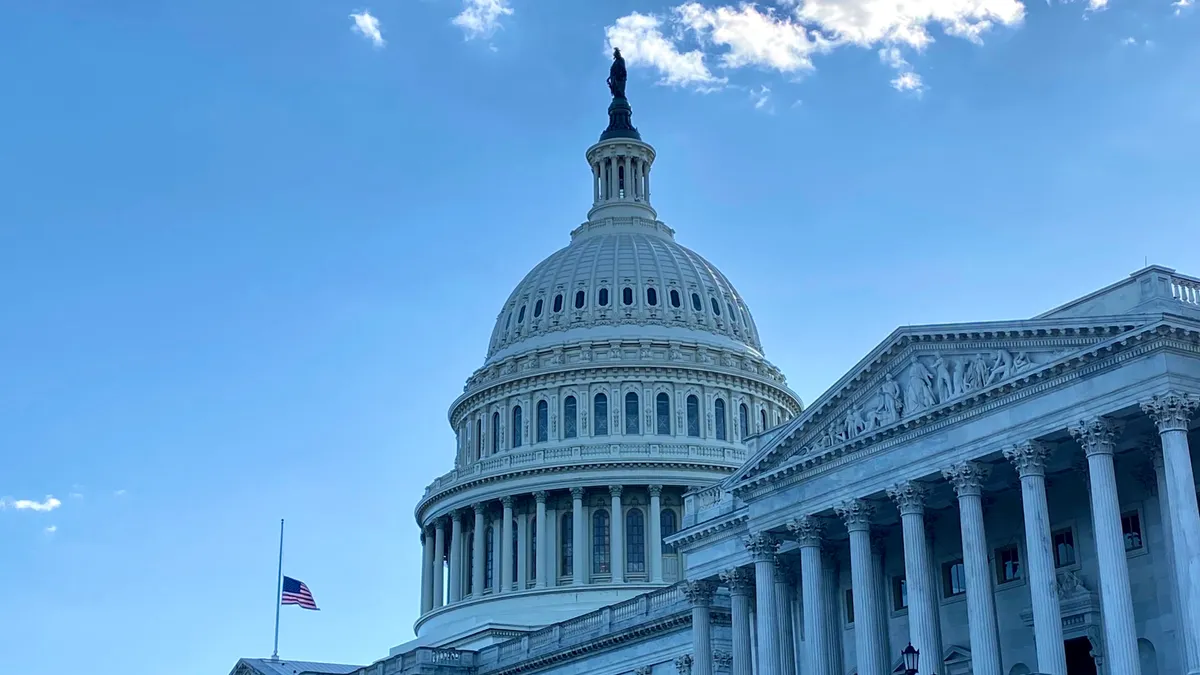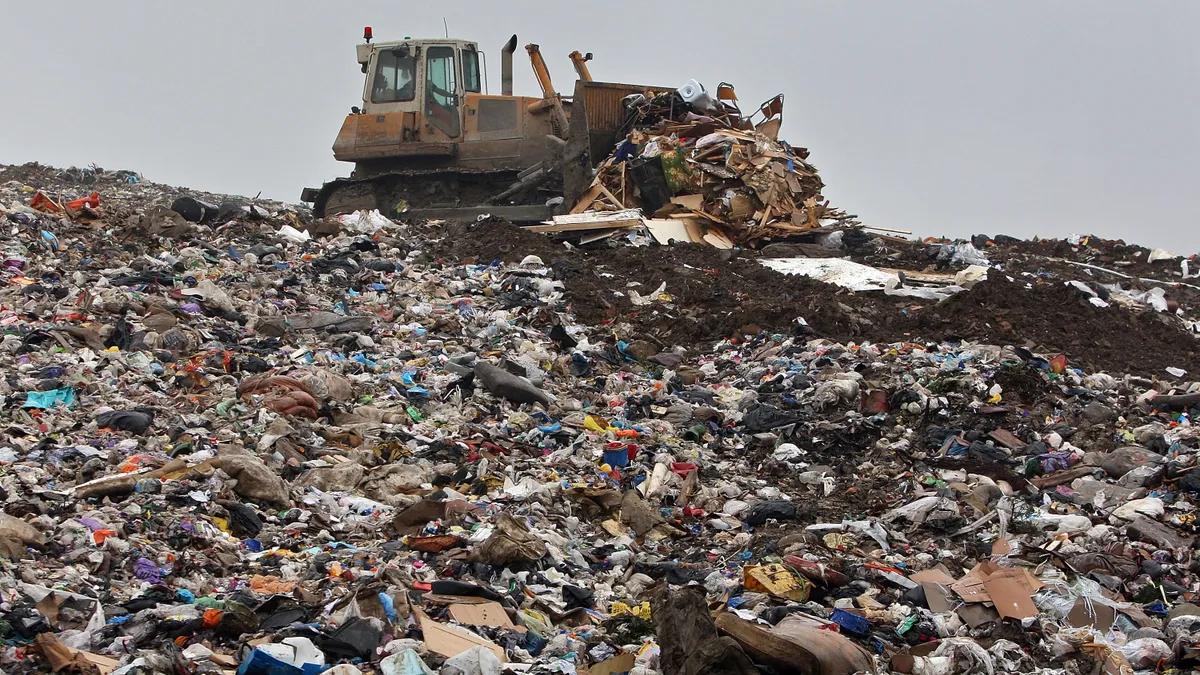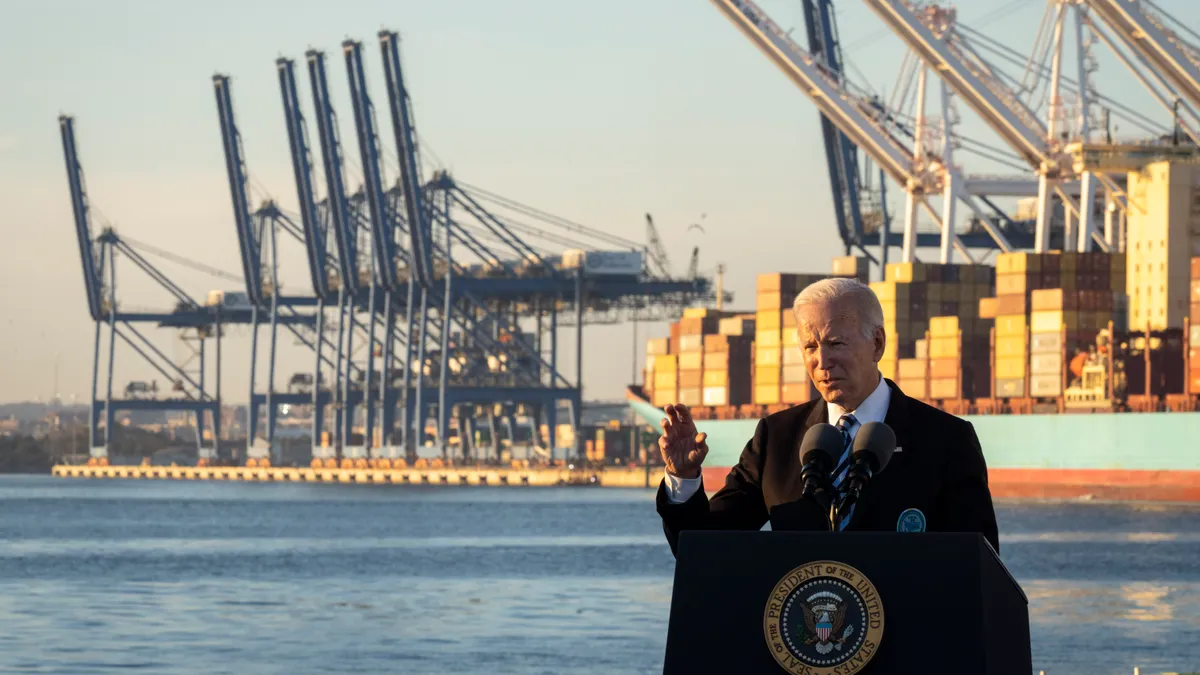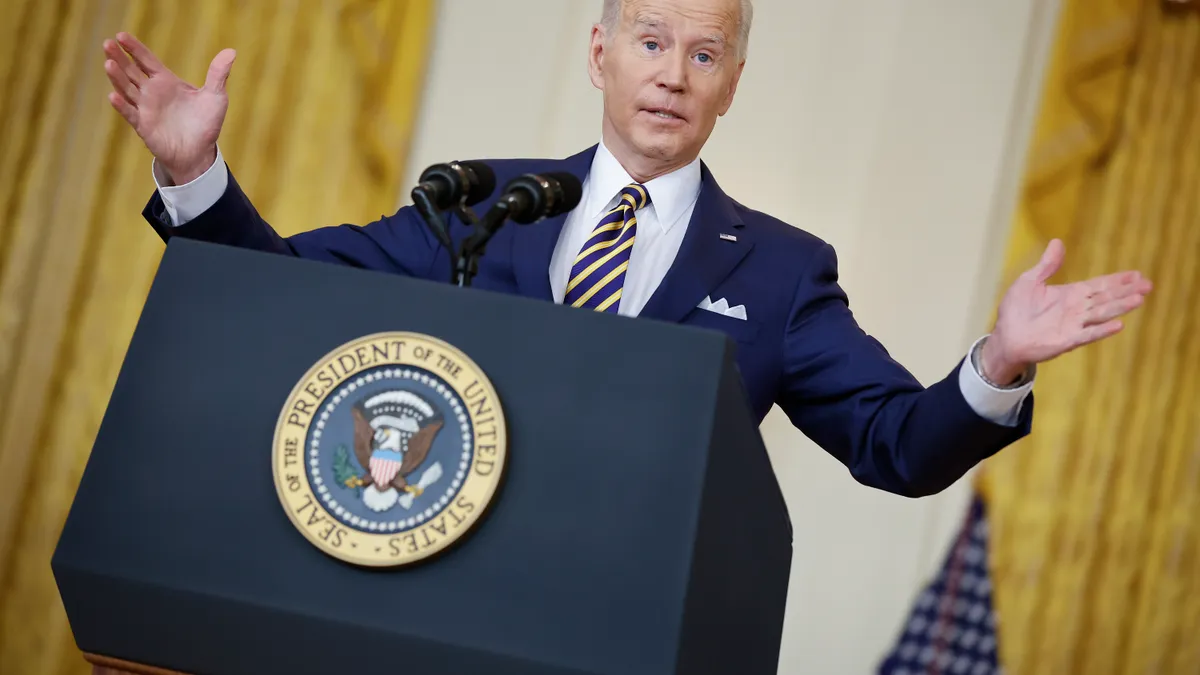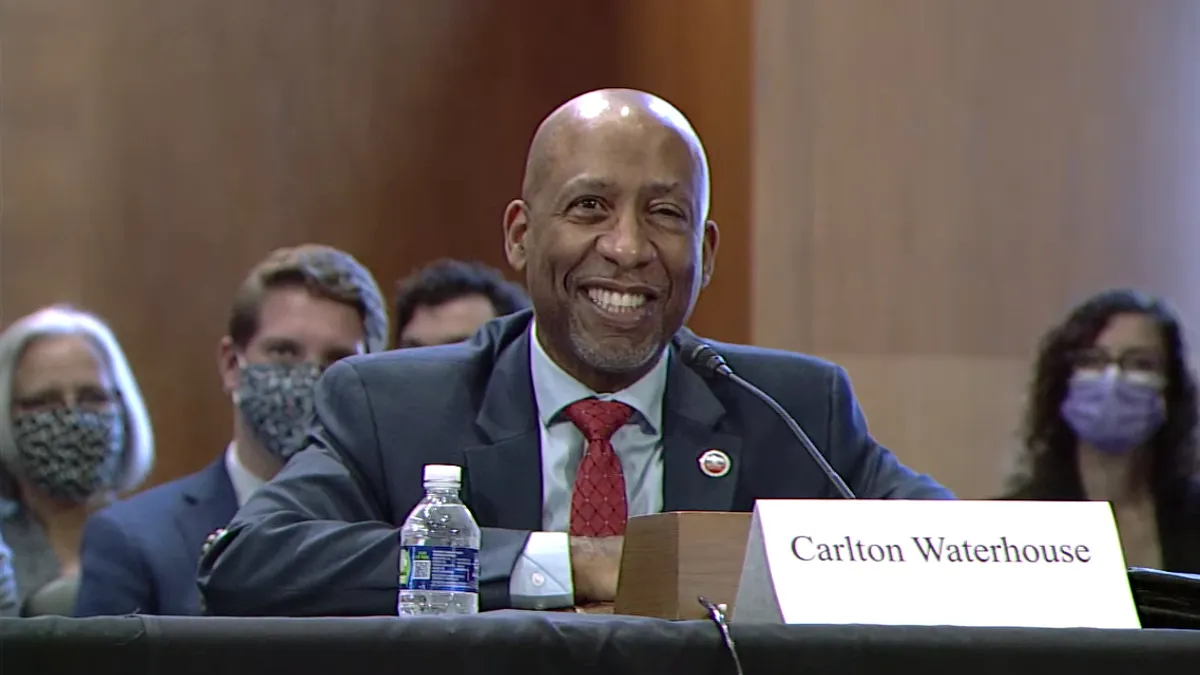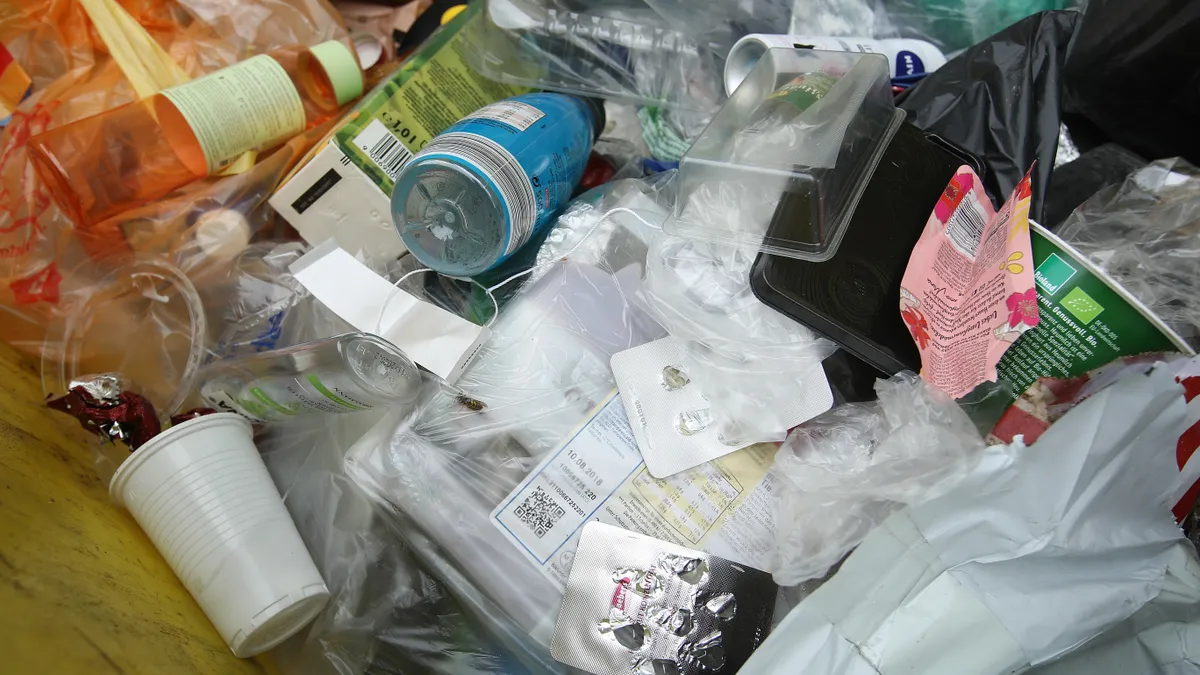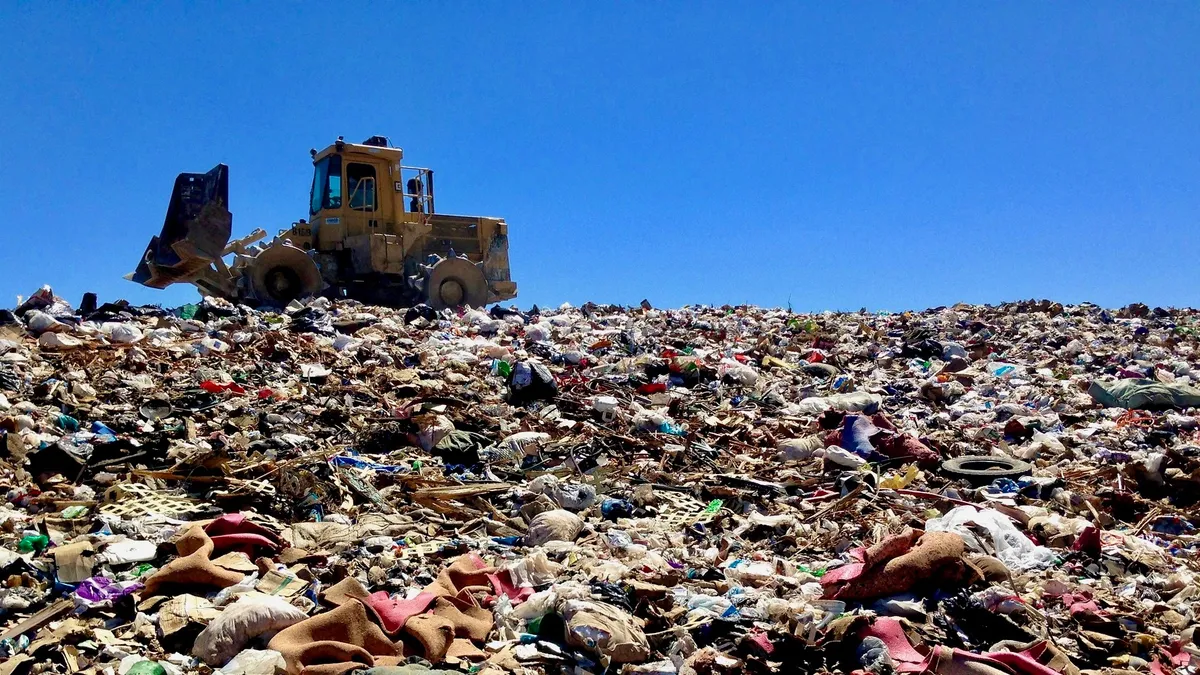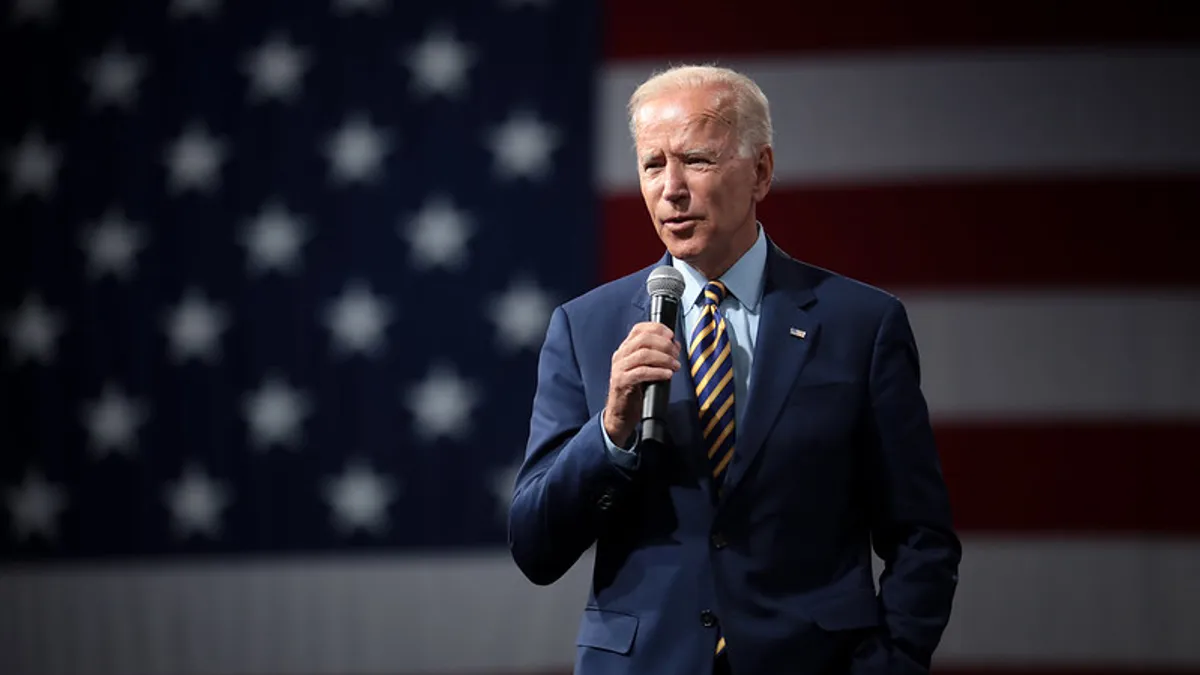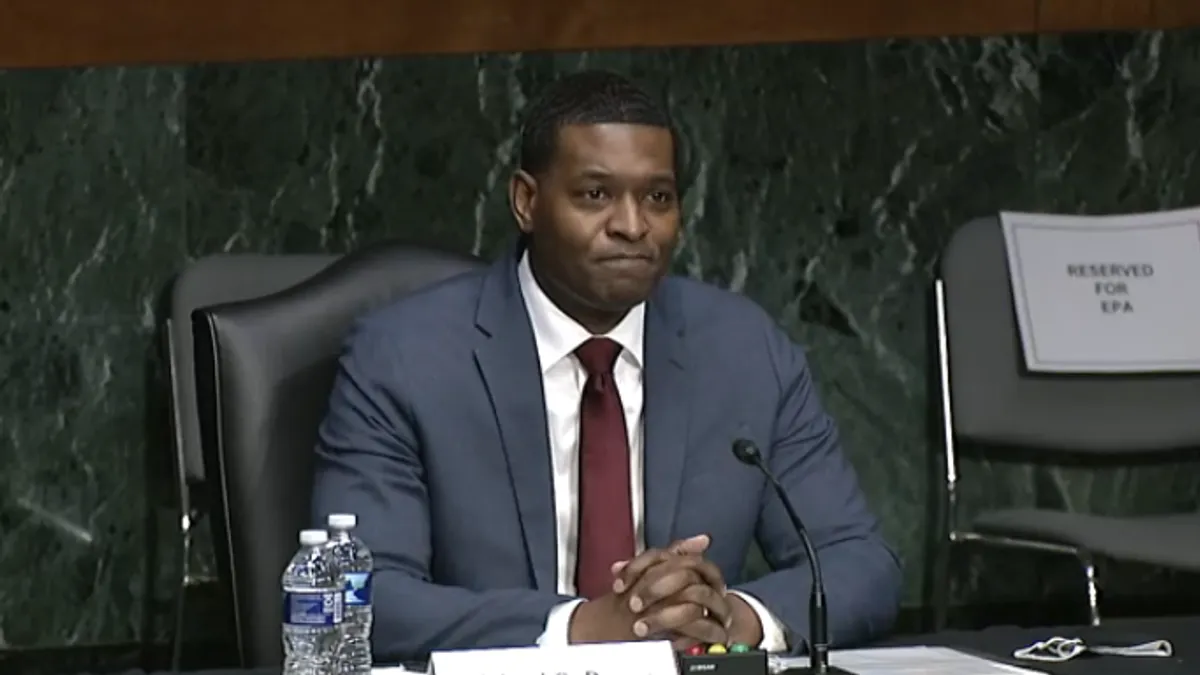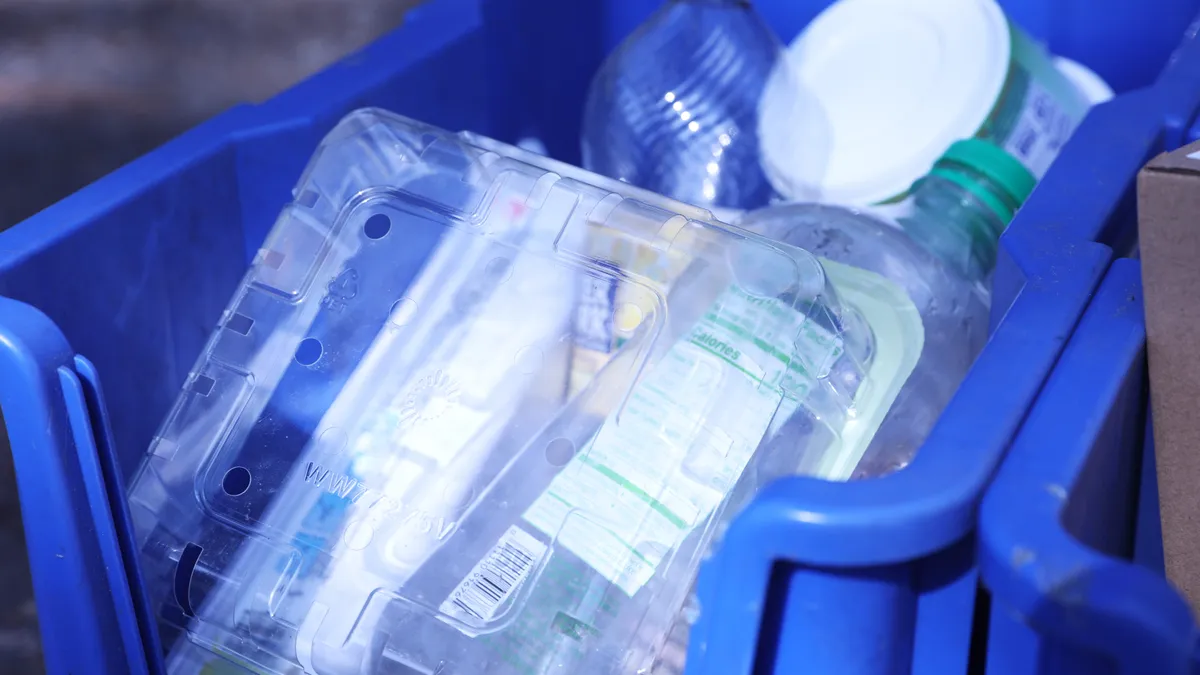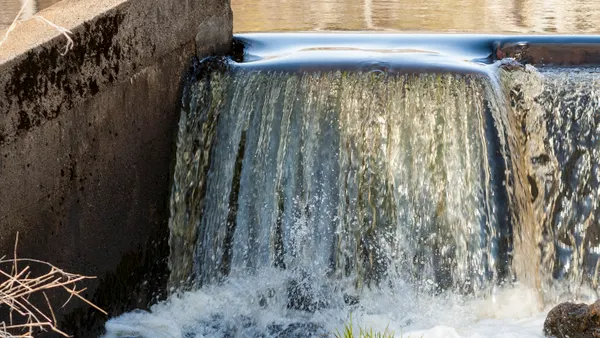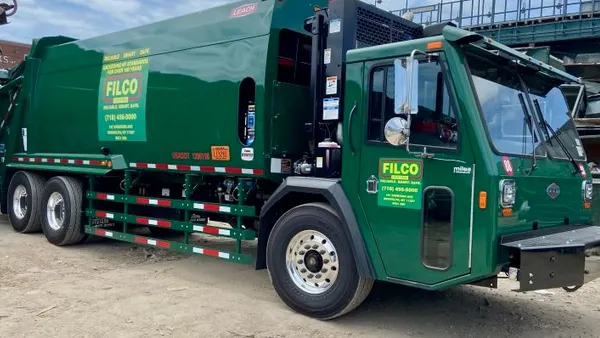UPDATE: June 16, 2021: The U.S. EPA's national recycling strategy, set for release this summer, is expected to center around Biden administration priorities such as climate change, job creation and environmental justice, according to an agency official at a SWANA event Tuesday. Nena Shaw, acting director of the Resource Conservation and Sustainability Division in the agency's Office of Resource Conservation and Recovery, also touted $10 million in potential recycling infrastructure funding and said a new recycling measurement guide will be coming later in the year to help encourage standardization.
"It's a super exciting time," Shaw said. "There are so many congressional and policy drivers coming together really to bring about what I think is sort of a unique opportunity to improve the state of waste management and recycling in the United States and, quite frankly, globally."
Dive Brief:
- The Biden administration is calling for the U.S. EPA's largest overall budget in history, at $11.2 billion, including $10 million in funding for a new Solid Waste Infrastructure for Recycling (SWIFR) pilot grant program as a result of the Save Our Seas 2.0 Act.
- Per the fiscal year 2022 budget proposed on Friday, SWIFR will "build innovation in the recycling industry" and focus on "improving solid waste management infrastructure and post-consumer materials management," with climate change mitigation described as a "cornerstone" of the program.
- Separately, the U.S. Department of Energy (DOE) also announced last week up to $14.5 million in research and development funding for "projects to develop economically viable solutions for converting plastic films to more valuable materials and design new plastics that are more recyclable and biodegradable."
Dive Insight:
Heading into 2021, a wide range of stakeholders in the recycling and plastics sectors were cautiously optimistic about the Biden administration paying greater attention to related issues. While the Trump administration received credit for convening a range of public and private sector leaders to discuss recycling via the EPA, it was also criticized for repeatedly attempting to cut that agency's budget.
As is the case with presidential budget proposals, the final details can often change considerably through the Congressional appropriations process.
Biden's proposed budget for EPA includes a number of relevant items around Superfund sites, PFAS and environmental justice. This includes a potential new assistant administrator focused on environmental justice.
The administration is proposing $1.22 million in additional funding for Resource Conservation and Recovery Act programs compared to enacted levels for the current fiscal year. This includes an increase for waste minimization and recycling work, which the previous administration singled out for significant cuts. EPA budget documents indicate the agency's longstanding work on sustainable materials management and food waste will continue, including implementation of a national recycling strategy and possible "additional actions needed to support a circular economy."
In recent months there have been numerous calls from advocates and trade groups for new ways to prioritize recycling and waste reduction, via federal budgetary and legislative actions, but no notable movement this year. To date, Biden has also not nominated an assistant administrator for the Office of Land and Emergency Management – the EPA division which oversees waste and recycling issues.
The EPA’s proposed $10 million in state and tribal assistance grants, via the SWIFR pilot, is one of the newest recycling-related items at the federal level. An agency spokesperson said the key difference from existing programs is this will provide direct financing, versus the agency's current approach of resources and technical assistance, to help "improve municipal recycling programs as well as to assist local waste management authorities in making improvements to local waste management systems."
The agency directly tied this to its 2030 recycling goals and said a final version of the national recycling strategy will be released next month.
"Federal investment is needed in the recycling system to reduce impacts from materials extraction and production on climate, address disproportionate impacts of mismanagement of wastes on overburdened communities, create jobs, and provide feedstock for the manufacturing sector to produce essential products," said the spokesperson. "The SWIFR financing pilot program will begin to address this need."
Save Our Seas 2.0, the law that spurred the pilot, also called for additional funding around recycling infrastructure, marine debris and plastics innovation. That bill authorized some programs from other entities, such as the U.S. Department of Commerce, under certain conditions. That agency has not published its complete budget documents and did not respond to a request for comment.
Multiple trade groups that applauded passage of the law did not respond to requests for comment. Solid Waste Association of North America CEO David Biderman said via email his group had discussed the funding with EPA and "it will be disappointing" if all of the funding envisioned in Save Our Seas 2.0 doesn't show up elsewhere.
Judith Enck, former EPA regional administrator and president of Beyond Plastics, said via email that "$10 million in proposed grants is far too modest given the scope of the problem.” Enck was also critical of DOE’s proposed $14.5 million plastics innovation funding because it could promote chemical recycling and related technologies.
“This is the type of policy that would be expected from the Trump administration and not the Biden administration, which has pledged to reduce greenhouse gas emissions and address environmental justice,” wrote Enck. “It is imperative that Secretary Granholm withdraw that proposal and issue a new one that actually deals with reducing the generation of plastics and not greenwash the problems.”
The DOE's proposed funding is the latest of multiple installments under the Plastics Innovation Challenge, launched in 2019, and the agency said its goal is "to increase plastics recycling to reduce the amount of new plastic and reduce plastic waste and plastic pollution going into our environment."
"The DOE program addresses both the energy consumption and material make-up of how plastics are currently manufactured so more items are recyclable—removing them from landfills, reducing overall plastic pollution, and enabling a circular pathway for existing and future material, reducing the need for new plastics. Strict metrics have been established to ensure the selected projects proposed technologies achieve at least 50% carbon utilization, 50% GHG emissions reduction, and 50% energy savings," said a spokesperson via email.
In a recent statement, PLASTICS President and CEO Tony Radoszewski was supportive of the DOE proposal, saying "we’re very encouraged to see the Biden administration recognize the importance of recycling infrastructure to a sustainable, circular economy."
Correction: A previous version of this story inaccurately identified the EPA division where Nena Shaw is acting director.


